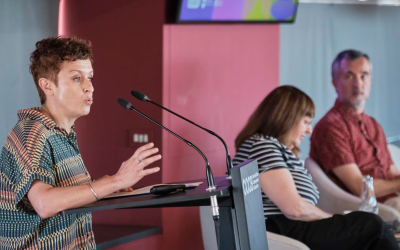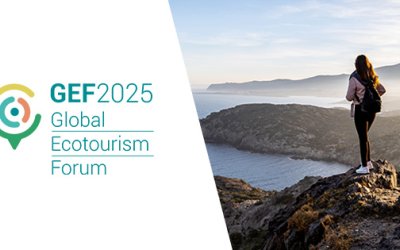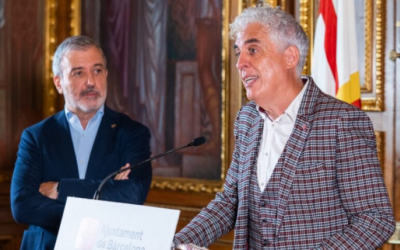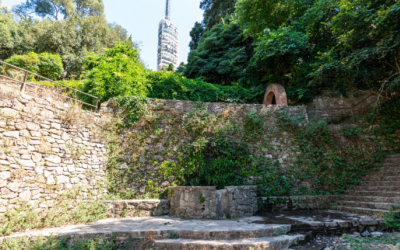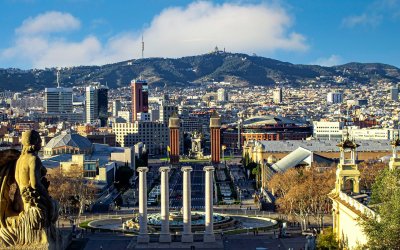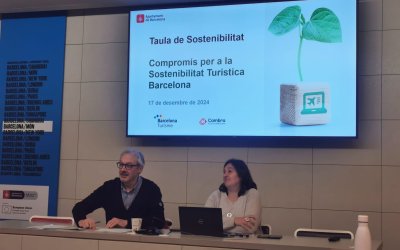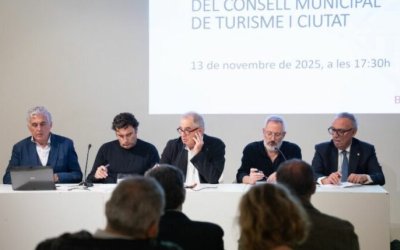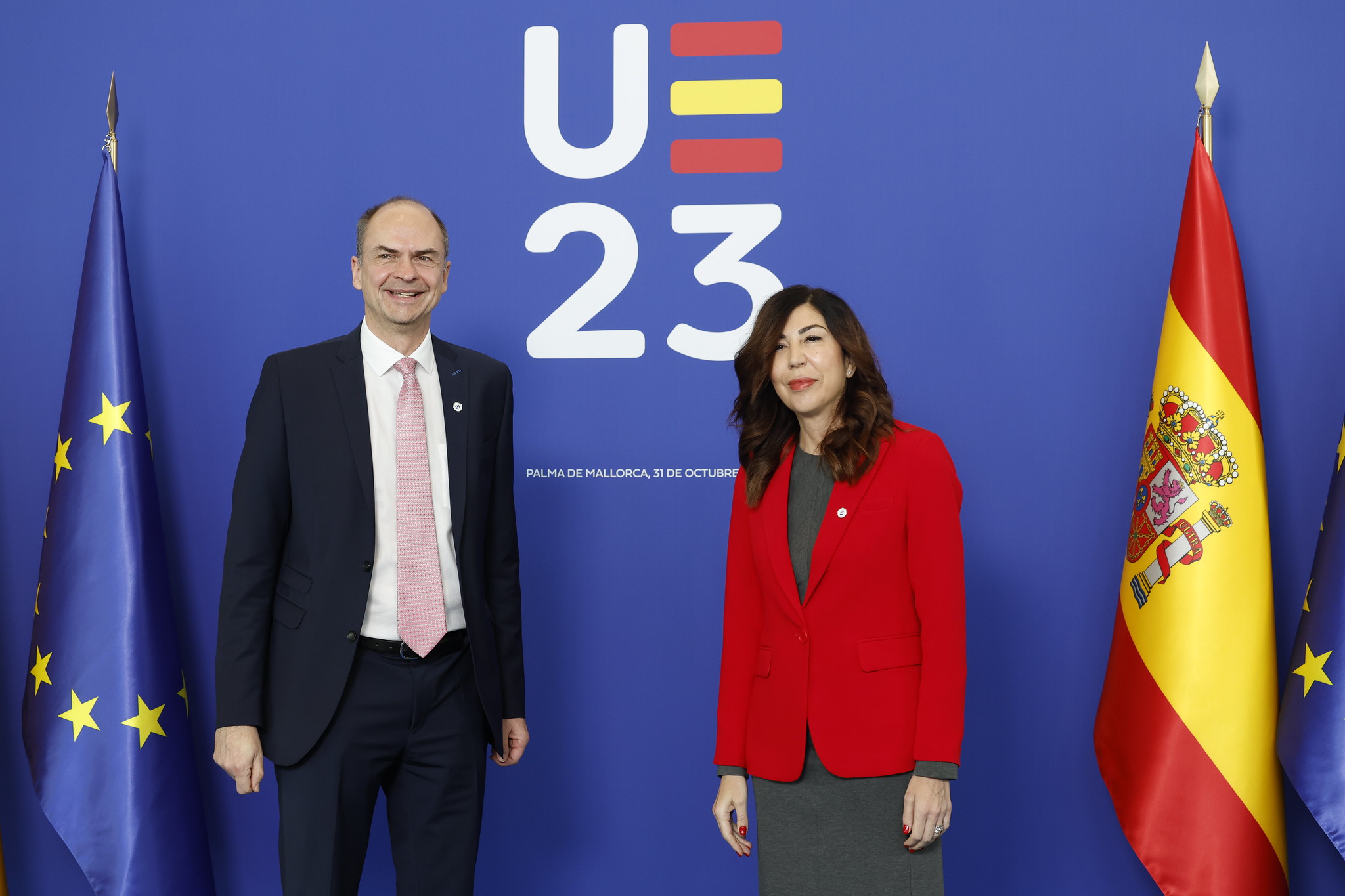
Rosa Ana Morillo, Spain’s Secretary of State for Tourism, welcomes Hubert Martin Gambs, Deputy Director-General of Internal Market, Industry and Entrepreneurship of the European Commission, before the informal ministerial meeting on tourism at the Palau de Congressos de Mallorca, on 31 October / Miguel Toña
Last October, the member states of the European Union, gathered in Palma de Mallorca and endorsed a joint declaration to ensure that Europe will move towards a new model of sustainable tourism.
This commitment to create a more ecological, digital, inclusive, resilient, and responsive sector to address future challenges aims to contribute to increased employment and ensure the well-being of all the stakeholders involved, especially local populations.
To achieve this, the Minister of Tourism recommended a set of guidelines aimed at promoting competitive, modern, high-quality, and sustainable tourism.
To begin with, the declaration emphasised promoting models based on the social sustainability of destinations in their economic, social, and environmental dimensions. This will be achieved by harnessing the power of digitalisation to promote sustainability and competitiveness, and by promoting the sharing of tourism data at a European level as a driver of growth and innovation for SMEs in the sector.
Furthermore, the member states committed to developing and strengthening EU tools to share best practices for the public sector and destinations, along with the private sector and academia. They also pledged to promote the development of accessible and inclusive tourism to foster equal opportunities and access for all.
Particular emphasis was also given to promoting efficient resource use and moving towards sustainable consumption and production, fostering best practices in tourism products and services and seeking their integration into the territory.
The signatories wished to highlight sustainable tourism as a key strategic area recognised within the European Agenda 2030, as a result of which the EU commits to ensuring active collaboration with stakeholders in the sector, with special attention to the needs of SMEs in the new digital economy and ensuring their fairness in relations between providers of tourist accommodations and the platforms on which they depend.
Finally, they wanted to underline the importance of training as a key factor in the development of the tourism ecosystem with the EU Pact for Skills, a tool aimed at improving the education of tourism professions and their attractiveness through cross-border mobility programmes.
A firm commitment by the member states
To ensure the fulfilment of these lines of action, the member states signed the Palma Declaration. And they emphasised the importance of promoting the competitiveness of tourism businesses, especially those of smaller size and those located in less accessible areas.
Therefore, they insisted that they will seek to promote the creation of a cross-border environment conducive to the development of tourism initiatives. This integrated approach will be reflected in policies and actions that take into account the importance of the tourism ecosystem.
In order to promote responsible and sustainable tourism, they undertook the commitment to supporting research, knowledge, and innovation in tourism; in a framework where technologies and the use of data will improve the quality, experience, and added value of the destination.
In this regard, they encouraged tourism stakeholders to place the well-being of local residents at the centre of tourism development, leveraging their cultural and natural assets. A set of initiatives that they want to promote through the exchange of best practices in sustainable tourism via national, regional, and local networks.
The member states will support practices that measure the sustainability of tourism in its economic, environmental, and social dimensions, as well as the establishment of local and regional partnerships for the development of workforce skills in the tourism sector.
To fulfil the commitments of the Palma Declaration, they will seek collaboration between member states by holding regular meetings of tourism ministers and state secretaries.
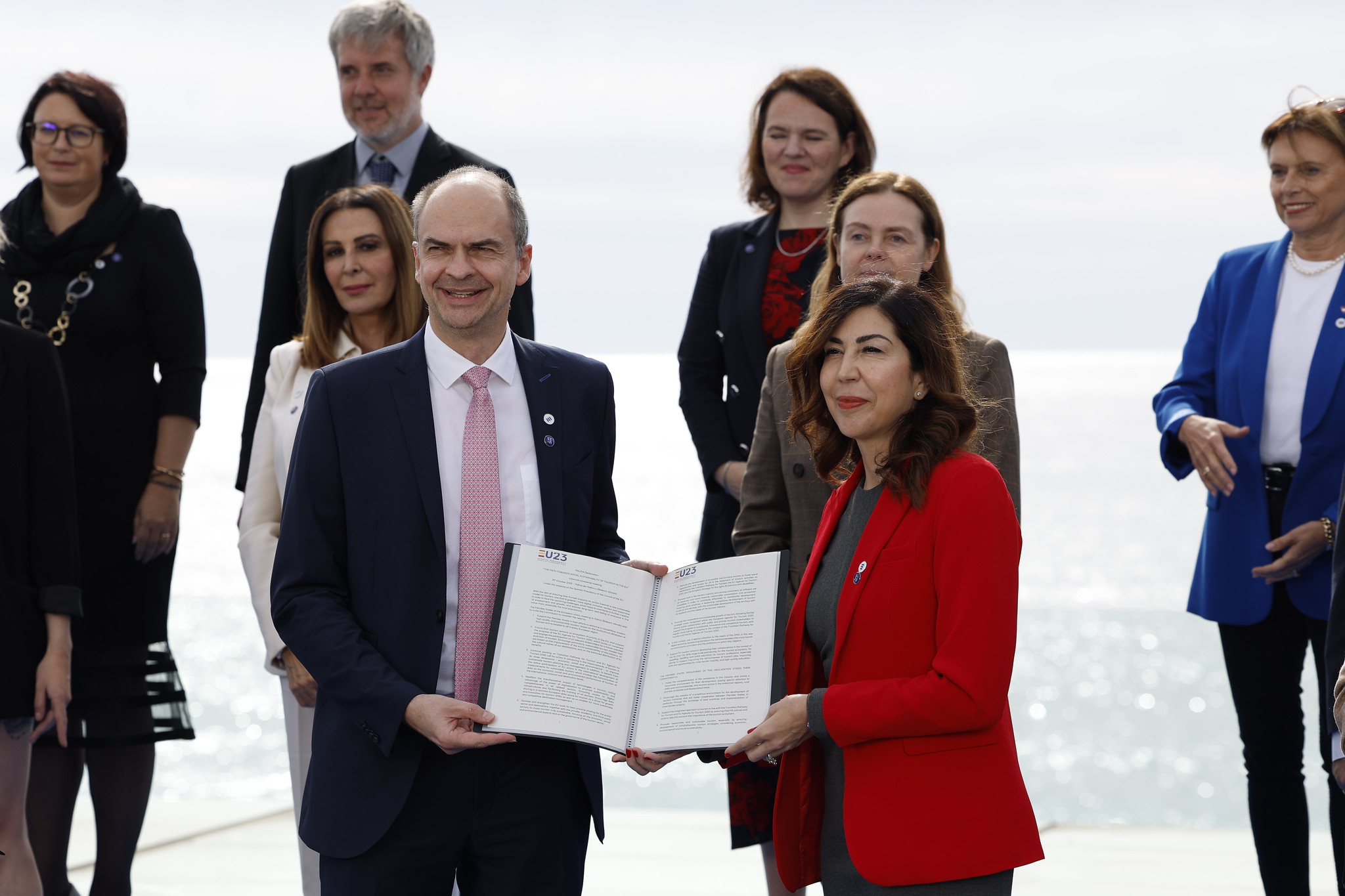
Rosa Ana Morillo, Spain’s Secretary of State for Tourism and Hubert Martin Gambs, Deputy Director-General of Internal Market, Industry and Entrepreneurship of the European Commission posing for an official photo after the informal ministerial meeting on tourism at the Palau de Congressos de Mallorca, on 31 October / Julio Muñoz
